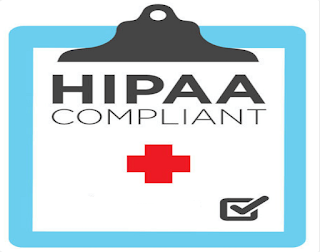All About Hippa Compliance
The National Institute of Standards and Technology is known by the acronyms NIST. It is a non-regulatory federal organisation that advances measuring science, standards, and technology with the aim of enhancing economic security while also fostering American innovation and industrial competitiveness.
 |
| Hippa Compliance |
Background
In 1901, NIST was established as a division of the US Department of Commerce. At the time, the U.S. measuring infrastructure lagged behind those of its economic competitors in Europe and elsewhere. The mission of NIST is to advance measurement science, standards, and technology in ways that strengthen economic security and enhance quality of life in order to increase innovation and competitiveness in the United States across industries.
How does NIST Works?
NIST's mandate is to provide guidelines and best practises for handling and protecting data within government agencies and any businesses that work under contract with the government.
NIST accreditation is advantageous to everyone, even though NIST rules are intended for use by government agencies and their contractors. Organizations in the public and commercial sectors can benefit from NIST regulations by planning thorough security programmes with strong controls that guarantee systems and data are well-protected.
Benefit of NIST
Compliance
NIST compliance improves resilience in the case of a successful intrusion by strengthening an organization's security posture.
Both public and private sector businesses can benefit from NIST, including:
● Safeguarding vital infrastructure against criminal assaults and carelessness
● Lowering the possibility of a data leak causing a business disruption
● Qualifying companies to collaborate with the government
● Gaining a competitive edge
● Supporting and assisting IT teams in managing new risk sources
● Protecting national security and secret information
In addition to maintaining Hippa compliance with other necessary rules like the Health Insurance Portability and Accountability Act (HIPAA) and the Federal Information Security Management Act, following NIST recommendations helps organisations keep their systems secure from attacks (FISMA).



Comments
Post a Comment